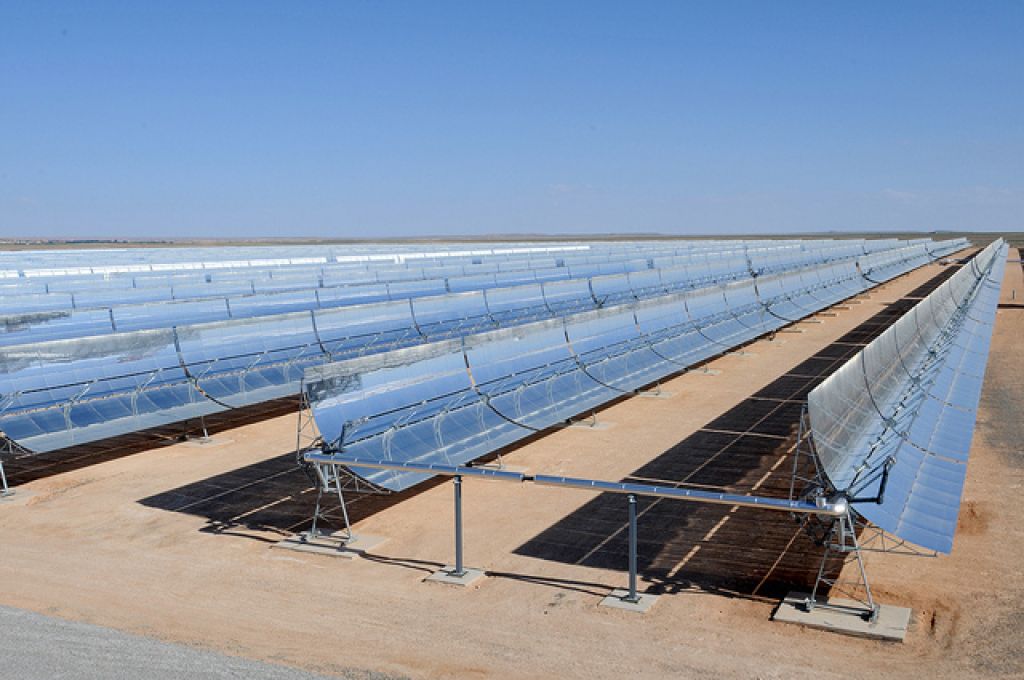Action needed now on climate change
Following the release of the Intergovernmental Panel on Climate Change (IPCC) report, the World Wide Fund for Nature (WWF) says the effects of climate change can already be felt across the world and that food, water and the livelihoods of many will be under threat.
The WWF says governments have to take action now.

This report follows another international study released earlier this year, which warned that the Earth is in its sixth mass extinction.
A team of researchers – from the University of California, Santa Barbara; the Universidade Estadual Paulista in Brazil; the Universidad Nacional Autónoma de México; the Natural Environment Research Council Centre for Ecology and Hydrology in England; and University College London – released a study in which they blame the doubling of the Earth’s population in the past 35 years for a noticeable decline in fauna.
The scientists say the current depletion of our planet’s biodiversity is a clear indicator that the sixth extinction, since Earth became habitable 3.5-billion years ago, is under way.
The IPCC study says that climate change is already affecting people and nature across the world – ocean acidification, sea-level rise, extreme heat events and profound changes in the Arctic show that climate change is already a fact. The IPCC was established by the United National Environment Programme (UNEP) and the World Meteorological Organization (WMO) in 1988.

The final volume of the Fifth Assessment Report was released in Switzerland earlier this month. It contains findings from seven years of work done by more than a thousand scientists from across the world. This report has been approved by all 195 IPCC member governments, as well as by scientists, and it represents an extremely broad and global scientific consensus on climate change.
Commenting on the report, Samantha Smith, leader of WWF’s Global Climate and Energy Initiative, says, “It (the report) tells us that we are the cause, and that our addiction to fossil fuels is the overwhelming source of the pollution that is changing our climate.”
Smith says that if the world fails to act, “we jeopardise efforts to reduce poverty and endanger food, water and livelihoods for many of the world’s poor. We also leave today’s youth and future generations with a nearly insurmountable challenge.”
The impacts of climate change can be observed during a tour of the Maropeng Visitor Centre, specifically the sustainability exhibition, which explains how our collective voracious appetite is putting strain on our planet
But Smith says it is not too late to avoid catastrophic climate change.
“The world can afford to fight climate change. This will neither cripple economies nor stop development – to the contrary, what is clear is that inaction will be much more costly, even when considering conservative estimates.
“Rapid, decisive action to get out of fossil fuels, in particular, can keep global temperature increases under 20 degrees Celsius, which is the threshold indicated by science to avoid dangerous climate change, and agreed by governments.”
She says there is a carbon budget – a limit on how much we can emit – but people have already used most of it. The answer to this, she says, is for global emissions to be reduced quickly. Emissions will peak this decade, but they have to go to zero mid-century if we want to avoid catastrophic climate change. “Governments, businesses and indeed all of us must move beyond small steps, and move into phasing out fossil fuels completely,” she says.
Adaptation to climate change is critical, but there are sharp limits to it. “Without immediate action on emissions and limiting impacts, adaptation will not be sufficient to protect lives, livelihoods and the natural world on which people depend.”